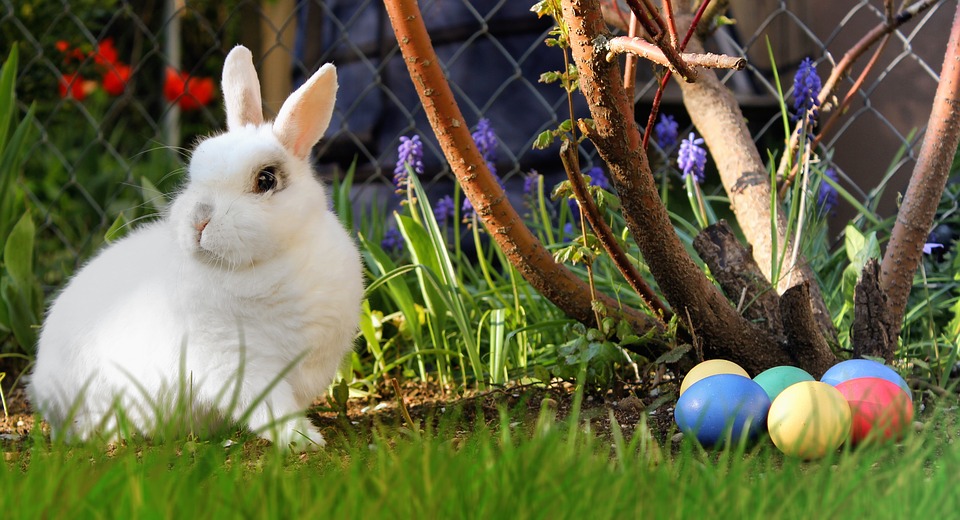 Easter is a special time across the world where people commemorate the crucifixion and celebrate the resurrection of Jesus. This spring time festival has many traditions associated with it in the UK, from the sharing of chocolate Easter Eggs to attending church services, taking part in street parades and eating hot cross buns. Find out more about the Easter holiday and explore some of our Easter vocabulary with a gap fill in our Easter EFL lesson idea for beginners.
Easter is a special time across the world where people commemorate the crucifixion and celebrate the resurrection of Jesus. This spring time festival has many traditions associated with it in the UK, from the sharing of chocolate Easter Eggs to attending church services, taking part in street parades and eating hot cross buns. Find out more about the Easter holiday and explore some of our Easter vocabulary with a gap fill in our Easter EFL lesson idea for beginners.
Easter Traditions in the UK
Easter is a Christian celebration of the last week of Jesus’ life, his death and his resurrection. For Christians, this time symbolises new life. The Easter season includes the 40 days of lent and Holy Week, which culminates with Easter Sunday – the day in the Christian calendar when Jesus rose from the dead.
Although Easter is a religious celebration, much like Christmas, it is also celebrated by most non-religious people. Easter weekend is a public holiday in the UK, stretching from Good Friday (the day of the crucifixion) to Easter Monday.
In other countries, such as Spain, the public holiday runs from Maundy Thursday (the day of the Last Supper) to Easter Sunday.
Holy Week
Holy Week (also called Passion Week) refers to the week before Easter, consisting of the suffering and death of Jesus. The days of Holy Week are:
Palm Sunday – the day Jesus made his triumphal entry into Jerusalem on a donkey (this is called Palm Sunday because the crowds welcomed Jesus by waving branches from the palm tree)
Holy Monday – on this day, Jesus cleared the temple of money lenders
Holy Tuesday – on this day, Jesus went to the Mount of Olives with the disciples
Holy Wednesday – supposedly the day Judas resolved to betray Jesus
Maundy Thursday – the last day of Lent and the night of the Last Supper – (The word ‘maundy’ comes from the Latin ‘mandatum’ – ‘command’ – which refers to the instructions Jesus gave his disciples at the Last Supper).
Good Friday – the day of the Crucifixion
Holy Saturday (Black Saturday) – the body of Jesus lay in the tomb, awaiting the Resurrection the following day (Easter Day)
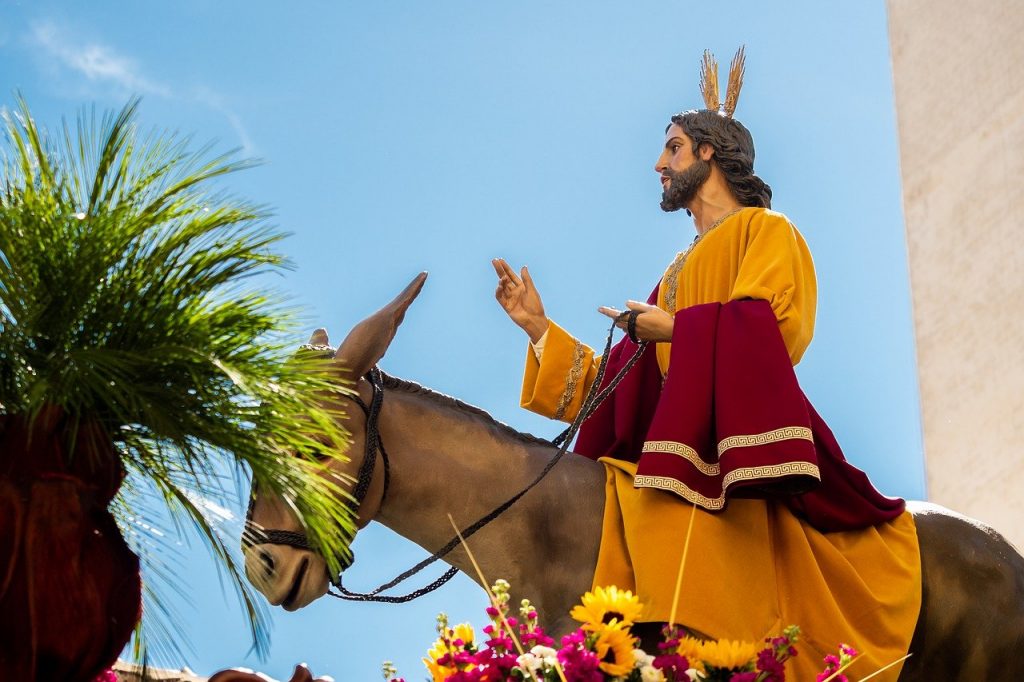
Jesus rode a donkey into Bethlehem on Palm Sunday – image source
Easter Sunday – Holy Week ends on Holy Saturday and the next day is Easter Day – the day Jesus rose from the dead: the Resurrection. Easter Day is a day of great celebration and feasting.
Easter Day is also the first day of Eastertide, which ends on Pentecost Sunday (the 50th day after Easter Sunday) – commemorating the descent of the Holy Spirit. This is also called Whitsun (White Sunday)
In the UK, the Easter holiday is lower-key and less commercial than Christmas. Although some people do send Easter cards, like Christmas cards, this practice is less common – and any presents at Easter tend to be made from chocolate!
Easter is becoming more commercialised and celebrated at home more than in previous times. You can now buy Easter trees (which tend to be white and smaller than Christmas trees) to decorate with ornamental eggs and other Easter motifs, such as rabbits and chicks.
There are many cultural activities and practices associated with Easter – see the vocabulary and gap fill exercise ideas below for more Easter traditions.
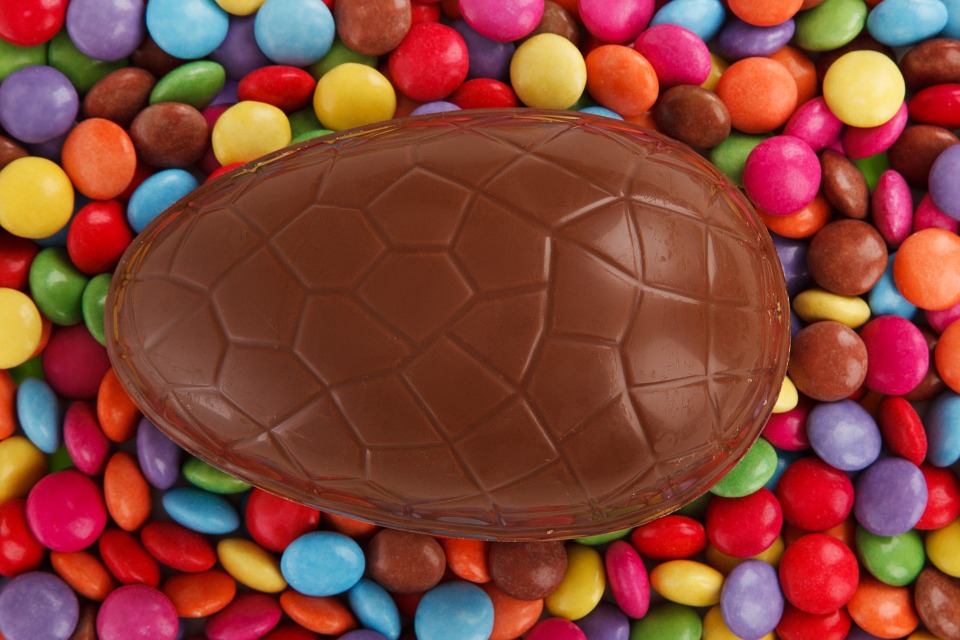
A delicious chocolate Easter egg – image source
When do we celebrate Easter?
The UK celebrates Easter on the Sunday following the first full moon after the first day of spring. This means that the date of Easter can vary, falling anytime from 22nd of March to 25th of April. This year, Easter Sunday falls on 31st March 2024.
Easter gives a good opportunity to discuss some UK Easter traditions. It is easy to create a short text discussing some of the most popular Easter activities and turn this into a useful Easter EFL lesson, including new vocabulary, gap fill sheets, oral discussions and comprehension tests.
After presenting the vocabulary, students can practice the Easter vocabulary together by discussing the traditions before completing a fun test exercise.
Easter vocabulary – gap fill exercise ideas
Here are some sentences with the special Easter vocabulary highlighted in bold. You could blank out the bold text and use this as a gap fill exercise:
- The crucifixion took place on Good Friday and Jesus rose again on Easter Sunday. In the UK, Good Friday and Easter Monday are both national holidays.
- Many people go to church for a special Easter service during which they sing hymns.
- There can also be street parades with food, music, marching and singing.
- Shops often sell Easter baskets filled with Easter treats and people send Easter cards to friends and family.
- People traditionally give chocolate Easter Eggs to children on Easter Sunday. Children also sometimes do an ‘egg hunt’, where parents hide small eggs around the house and children hunt to find them.
- Children also enjoy painting eggs at Easter and decorating them with colourful designs. A common activity is to make a hole in an egg, drain out the yolk and egg white, then paint patterns on the shell. These make pretty Easter decorations.
- Hot cross buns are eaten at this time of year, traditionally on Good Friday. Hot cross buns are special bread rolls with fruit inside, usually raisins and small pieces of dried fruit. These rolls have the symbol of the cross marked into the bread on the top.
- Other traditional Easter foods include simnel cake, which is a rich fruit cake made with almonds. Eleven balls of marzipan are traditionally used to decorate the cake to symbolise the disciples, excluding Judas.
- For their main meal, many people eat roast lamb with mint sauce. The lamb is associated with Easter and spring time.
- Animals associated with Easter are rabbits, chicks and lambs. These animals are traditionally born in the spring. The Easter bunny is a symbol in folklore; the Easter bunny is a young rabbit that brings Easter Eggs to children. The lamb is also the symbol for Jesus in the Bible, while many countries traditionally eat lamb on Easter Sunday.
Match Easter vocabulary with pictures
Beginner students can also match vocabulary with pictures. This is an ideal lesson for children or students just learning about Easter for the first time:
|
|
|
|
|
|
|
|
|
|
|
|
 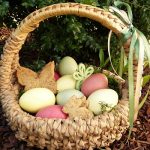 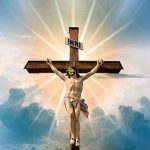 |
|
 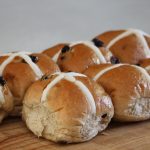 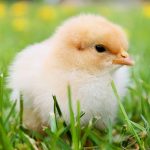
|
|
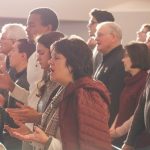 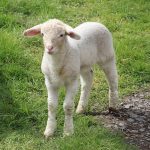  |
|
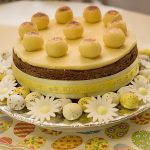 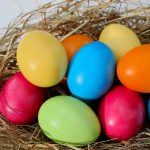 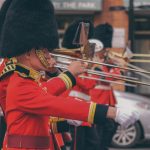 |
Share your thoughts about Easter
What other Easter vocabulary do you think should be included in an Easter-themed lesson?
How do you teach vocabulary for Easter? Do you have any good EFL lesson ideas for Easter to engage students?
International students, do you celebrate Easter in your country? If so, how do you celebrate?
Let us know your thoughts on Easter celebrations and Easter EFL lessons in the comments!
Attributions
- Hot Cross Buns by Jan Smith via Flickr [CC BY 2.0]
- Simnel cake by James Petts from London, England (Simnel cake) [CC BY-SA 2.0], via Wikimedia Commons
